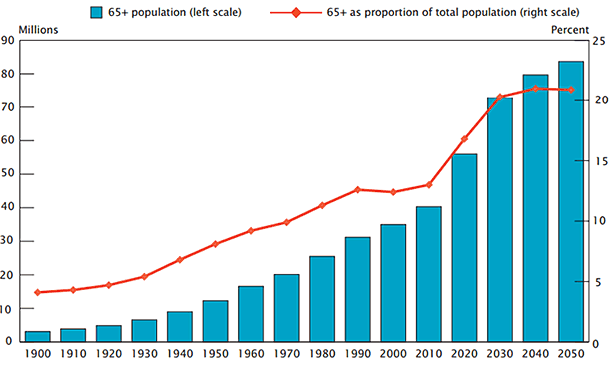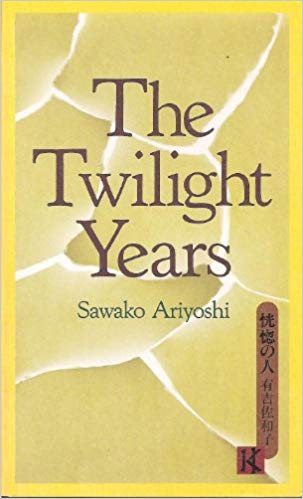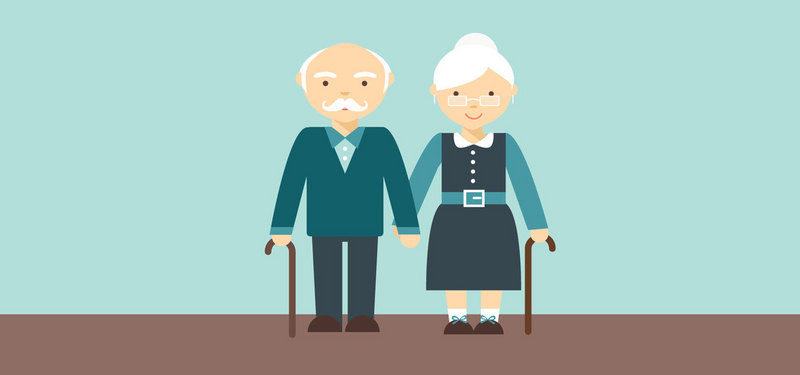At my age, people don’t really think too much about the aged. I don’t even have a job to retire from, so what do I need to know about a Roth IRA? In America, life expectancy is almost 79 years, and most people retire around age 65- I’ve got plenty of time. Of course, that’s natural and probably for the best. There is, however, an argument that my generation is increasingly disconnected with seniors. With conservative politicians advocating cuts in programs like Medicare and Social Security (for a variety of reasons), what does it mean for the average retired person? More generally, how do the elderly feel in today’s society- in our rapidly evolving world, where do they see themselves, and how do they manage to keep up?
As the son of Indian immigrants, one of the tenets of our culture is “respect for the elderly”. It’s an ideal that forms a common denominator across many societies: our elders are wiser, and when regarding family, it’s likely that their decisions enabled us to be where we are today. One of the things that struck me growing up in America was how differently American families and Indian families were formed. In India, it’s common to have larger, “extended” families living together: if not in the same house then perhaps most family members live in the same vicinity. Both of my parents’ families were like this- when I went to India to visit family as a young kid, my grandparents lived with my uncles and aunts, and were taken care of by them. When my grandparents’ health condition deteriorated, they were tended to in their home with hired help. In America, retirement homes are more popular, and few families live within such close proximity to the older generation. I experienced some level of disdain towards this as I volunteered at retirement homes in high school- it seemed that by staying away from their families, the elderly were missing out on perhaps the one thing they cherished the most. It’s easy for me to say that without having to make that decision to begin with, and perhaps those people had health conditions that required regular immediate attention. However, it may also be the case that American culture today is more selfish in its outlook- our personal and professional lives can become a relentless pursuit of some self-realized and myopic definition of success. People easily lose sight of what’s important in this hunt, which I’m sure we’ve all been guilty of at some point. It’s crucial to me that this doesn’t happen when dealing with the people closest to us, especially family.

Source: National Center on Elder Abuse
Part of the reason I wrote this was an article I read in the New York Times several weeks ago. In it, the author describes how communities of Japanese elderly people had formed who were essentially ignored by the outside world, left to die alone- so much so that some died in their apartments without anyone noticing for weeks on end (and in one case, three years!). Imagining myself in their place, I would feel devastated- why even live? Nobody deserves that fate. I think that we have a tendency as a society to look at the future, how to improve what we have. The author of the Times article discusses a Japanese postwar emphasis on economic growth, a process that apparently fragmented families. It’s possible that the elderly are themselves in some part responsible- on a broad level, the policies they endorsed as a generation, the decisions they made may have led to their state. On an individual level, it’s doubtful all of those people in retirement homes made choices that maintained healthy relationships with their children and other families, or even the right decisions that maintained their physical wellbeing. But there’s no way the decisions I make right now have any consideration for myself in 50 years, and I know that it won’t be perfect- it’s impossible to expect that out of anyone of any age. What makes the case tragic for the elderly is their helplessness in this plight- they have less ability than their younger selves to control their destiny- to get a new job, to move from floor to floor (much less from state to state), to gain the skills required to get paid. A well-written Washington Post article I read talks about how seniors in America are working longer than ever as programs like Social Security end up not being enough. It turns out that Social Security pays less on average than minimum wage, meaning people who don’t have strong retirement savings are really screwed into finding a job, in a hypercompetitive market that caters more towards a modern, technical skillset . There’s not really an alternative: one interviewed senior remarks it being a “toss up” between fearing death and running out of money. It’s a rather sad way to spend one’s twilight years, stressing over financial security not for any notable personal enjoyment but for mere sustenance.

Sawako Ariyoshi’s novel The Twilight Years delves into the rapid emergence of a large elderly population in Japan, selling over one million copies
To be honest, there’s a range of factors that cause problems for seniors, some of which are probably self-inflicted. I don’t have the knowledge to delve into the economic situations and cultural shifts that have led to this struggle for the elderly. I can’t claim to have any solutions: this may just be how things are. And in full discretion, my insights are based off of my own observations and some reading- if I or a loved one were in that period of life, perhaps my ideas would be different. If there’s anything I do want to express, however, it’s that we as individuals and as a society should look at how it is to be elderly now, and what that says about our values. To some, this may be a non-issue, and that should be respected. Regardless, hopefully a discourse on the topic will lead to some consideration for our seniors, a group that is indisputably suffering, and will suffer more as current socio-political trends continue.
